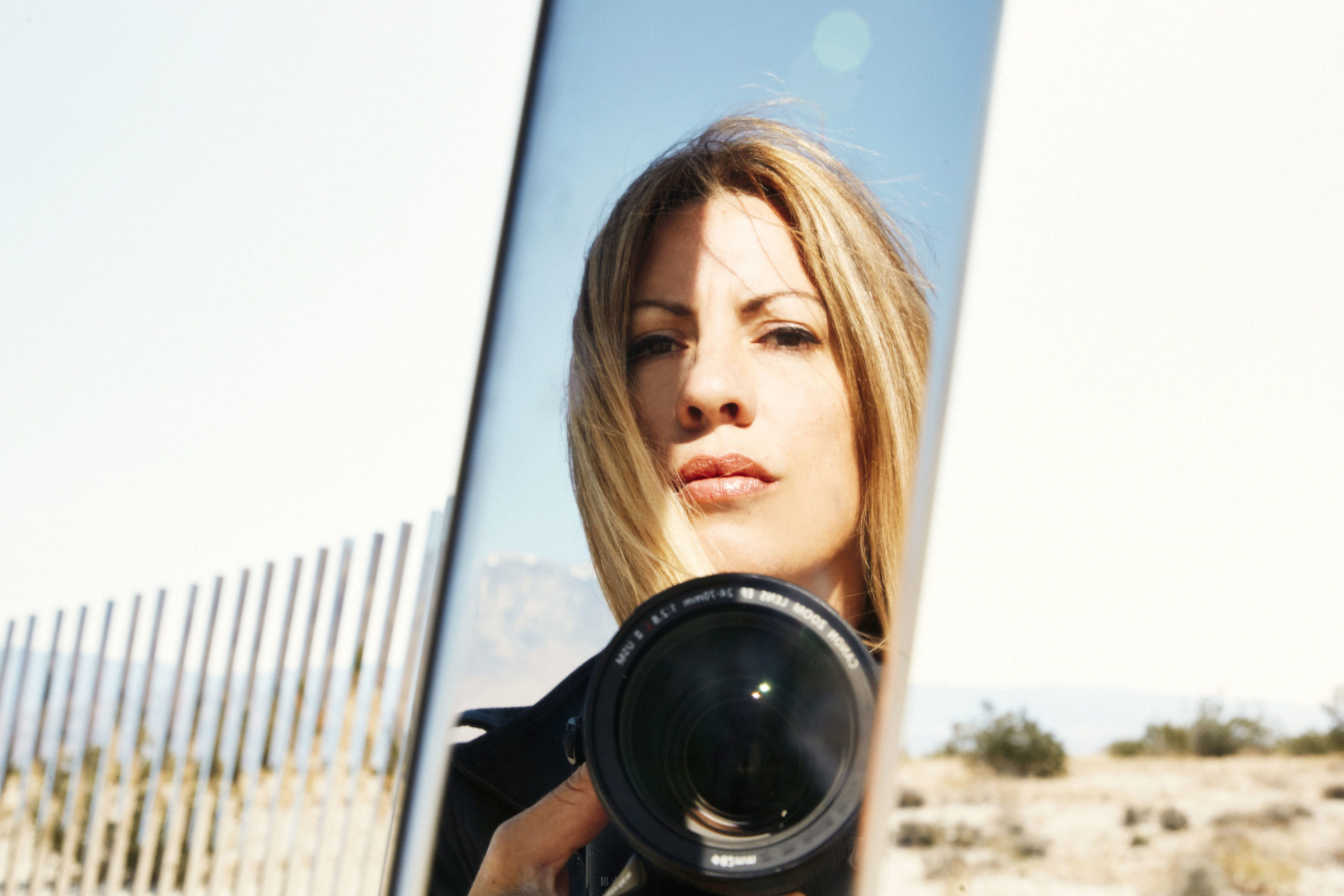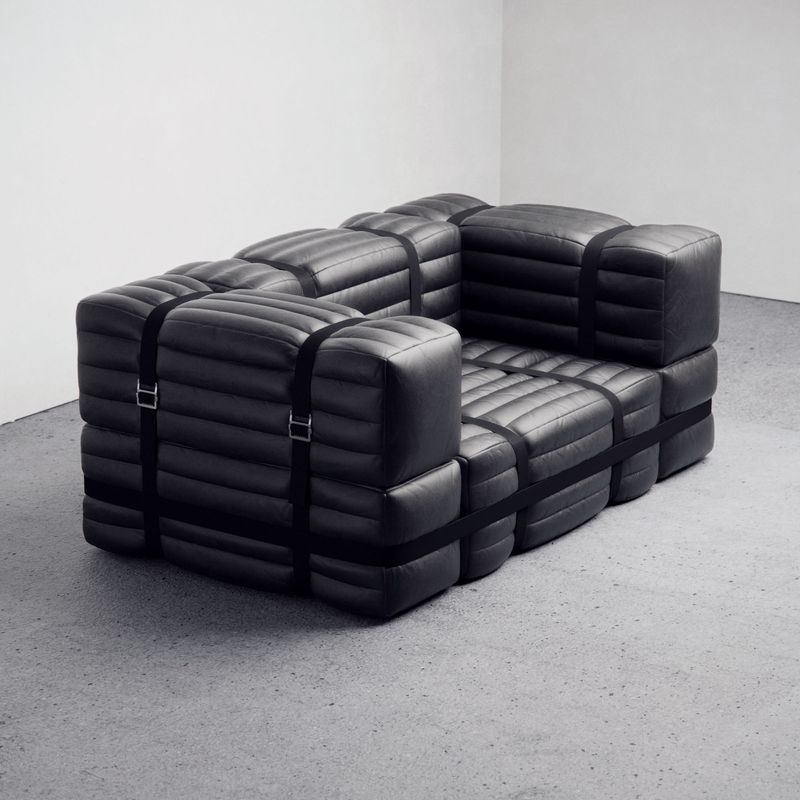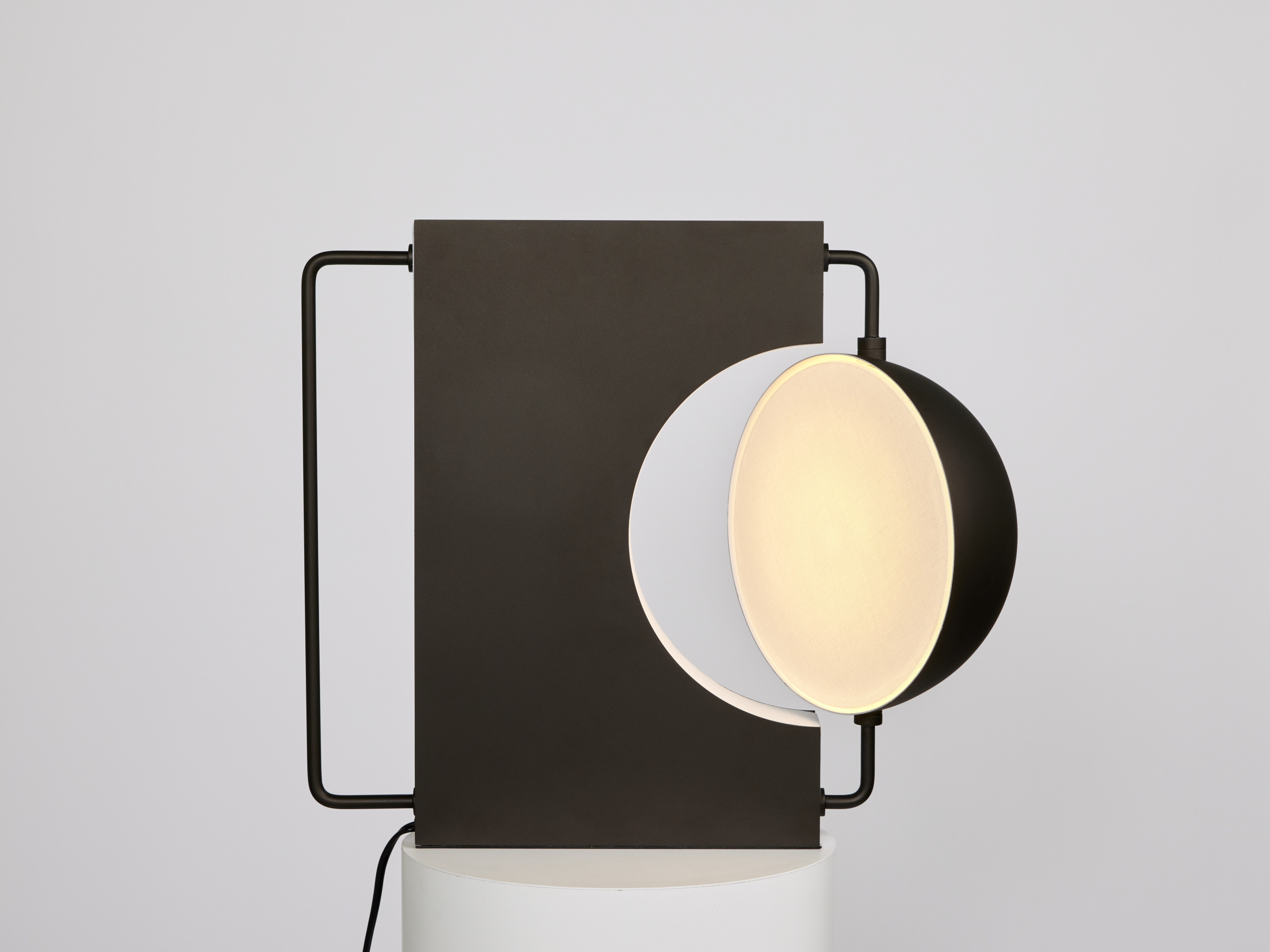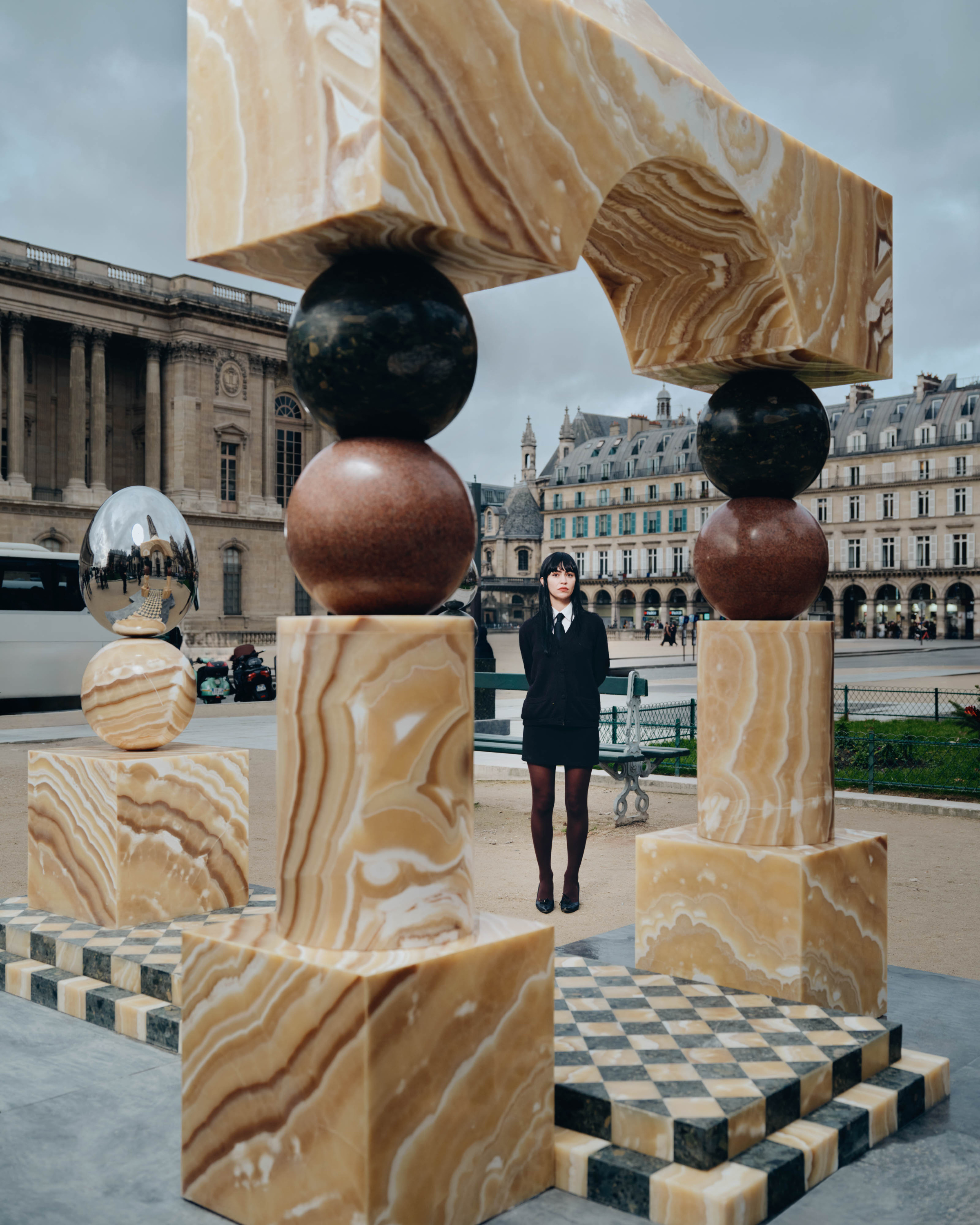Robin Laananen spends more than half of the year touring the globe, managing tours, and rubbing elbows with some of the most famous musicians on Earth. She has the type of career you’d love to shadow for even just one night. Well, you can shadow her (almost). In her 2017 book, Us / Then, Robin takes us behind the scenes, documenting indie rock band Warpaint. As both tour manager and photographer, she anticipates bands’ needs and gets in the trenches with musicians in ways few can. Her book shows us a candid view of what it’s like out there day after day and night after night.
Before she discovered her knack for tour management she expressed her love of music through photography. At 22, after deciding Arizona State University wasn’t for her, she packed her bags and left for Seattle to shoot punk rock shows. Her work led to assignments with local papers and eventually Sub Pop. She immersed herself in the scene and started selling merch in exchange for touring with bands, “just so I could document how life really was on the road,” she says. Her organizational skills—and especially people skills—led her to tour management, most notably for Warpaint and Refused. I recently spoke with Robin about life on the road, chasing what you love, and finding balance in life.
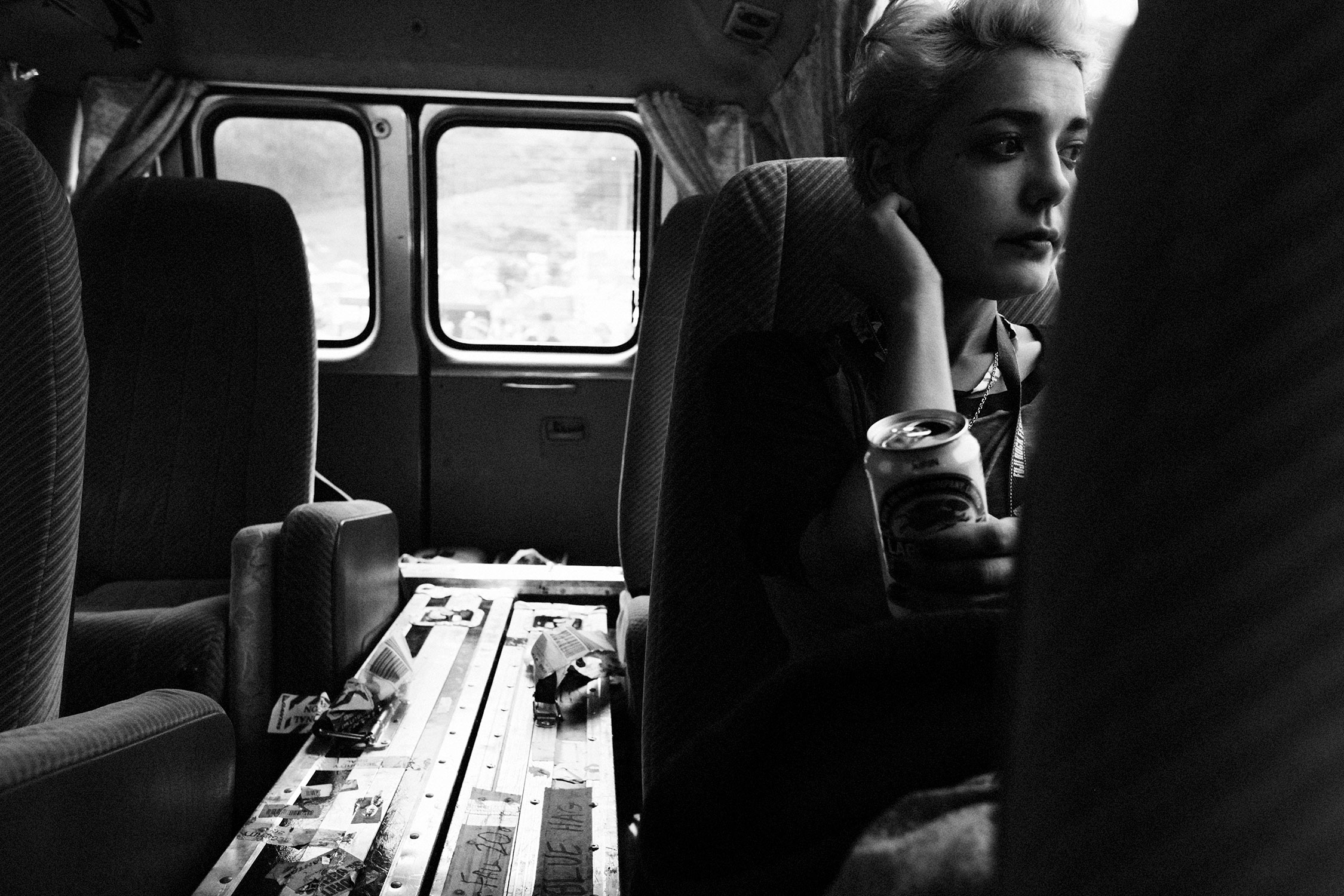
When Robin is out on the road she shoots with a Canon 5D Mark III, Fuji X100t, and Yashica T4. PHOTOGRAPHY BY ROBIN LAANANEN.
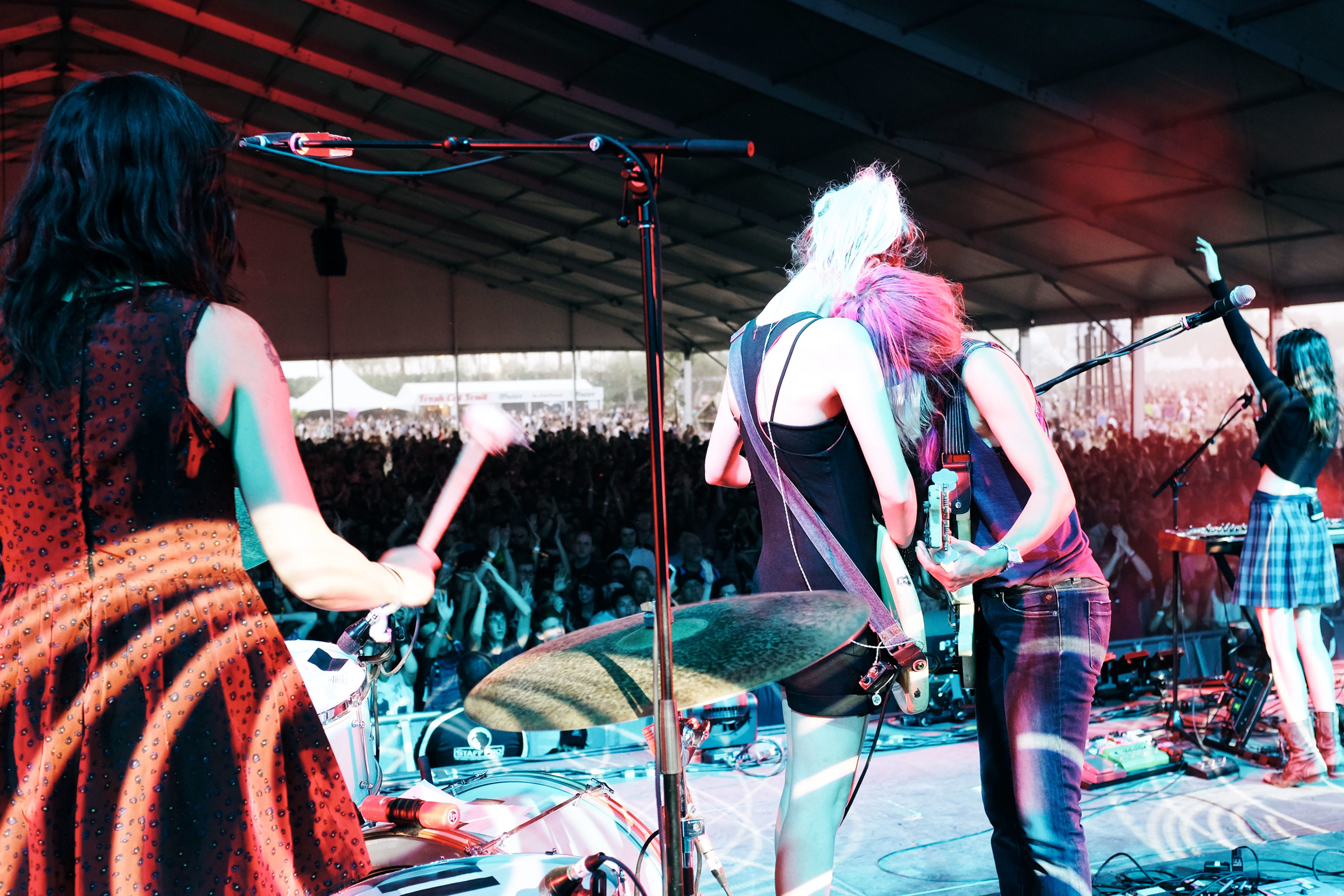
Warpaint has played Indio’s Coachella Music Festival a few times, but this one stands out for a few reasons—one being that a huge dust storm was rolling in as they played. No one seemed to care, neither the band nor the audience as the skies outside the tent turned from yellow to orange to brown. The energy grew as their set came to an end, which is when I ran behind them for this shot. PHOTOGRAPHY BY ROBIN LAANANEN.
When I’m on the road I feel like I’m living a condensed, or even heightened, version of my “real” life. And I tend to enjoy it. It forces me to focus on things I care about the most and ignore the rest. Then, when I get home, I get restless and start to crave that viewpoint again. Do you ever feel that way?
I absolutely do! I deal with the same struggle after returning home; feeling a void from the absence of chaos, the stimulation of daily changing environments, and the pleasure of staying present regardless of location due to not being familiar with our surroundings (or becoming reacquainted with a city I’ve been in the past). I try to incorporate that with life in Los Angeles, of being present and inspired, but I’m definitely restless after catching up on sleep.
You seem so calm and present for someone who manages so many stressful situations and rubs elbows with famous people. How much of that is your natural personality, or are there things you can share with us on how you’ve become that way?
I’ve found through experience that not only does being stressed not help a situation, but it affects those around me, which leads to an unhealthy environment. Mistakes are made when there’s stress. This should be an enjoyable experience. I’d like to say we’re not saving lives, but I feel music can. I would say it’s a mixture of having crashed
and burned from stress in the past, learning the hard way, and my natural personality. If I’m mellow and smiling, others will do the same—it’s contagious. And I’m fantastic at freaking out, silently, with a smile.
I’m fantastic at freaking out, silently, with a smile.”
You’re also remarkably healthy, eating vegan on the road (I can barely keep from eating pizza three times a week). When you’re out to dinner on the road at a not-so-fabulous place, what’s your standard order?
The world is coming around. There are more vegan options, even in the most random places. If you want to think in a utilitarian way, with the lack of sleep and hard travel involved with touring, eating vegan can help keep your body keep up with you. Delicious healthy vegan food gives me energy, the much needed fuel to steer the ship. But yes, worst case scenario, in the armpit of a country, it’s a salad and fries.
You’ve said in other interviews that the key to traveling well is being well prepared. What would you say are the three most overlooked things to prepare for when traveling?
Yes, the more you’re prepared, the more chance you have to enjoy yourself rather than worry about lost details. I think booking a hotel with walkable places to eat and explore is key. It’s a good plan to make a list of restaurants/snob coffee cafes, and their open hours, before you leave, as it can take time. I also write down photogenic sights, possibly near each other, to have destinations, with the idea that I’ll stop along the way.
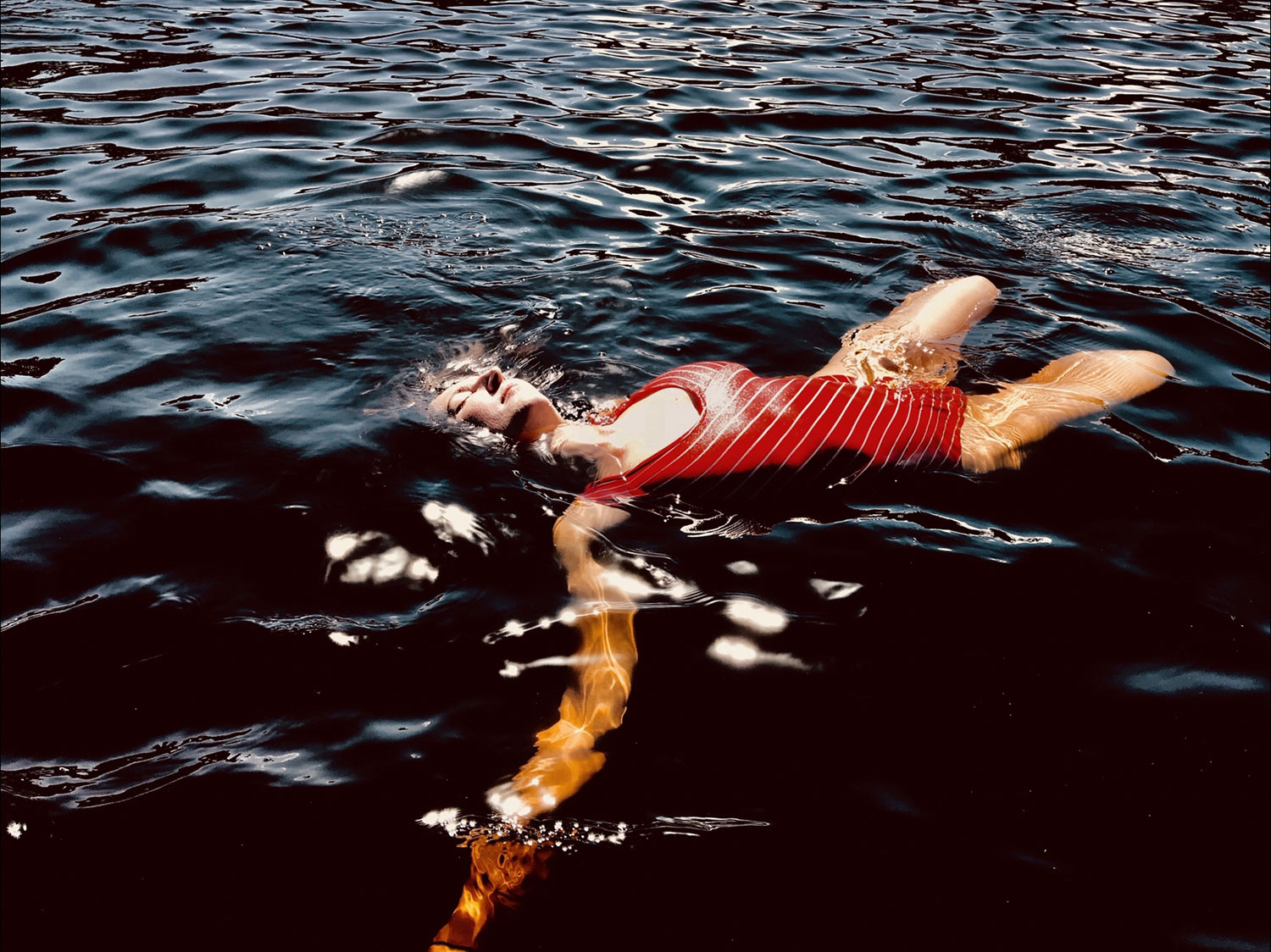
Byron Bay, Australia. I’ll always remember, and be grateful for, moments like these, when the opportunity arises to soak yourself in life and the current location. More specifically, this is Emily in the Tea Tree lakes in Byron Bay. After Warpaint finished a run with Alt-J in Australia, we all decided to spend a few days there. We rented a big house near the beach, relaxed, made dinners, ogled the local wildlife, and had time to reflect on the past year. PHOTOGRAPHY BY ROBIN LAANANEN.
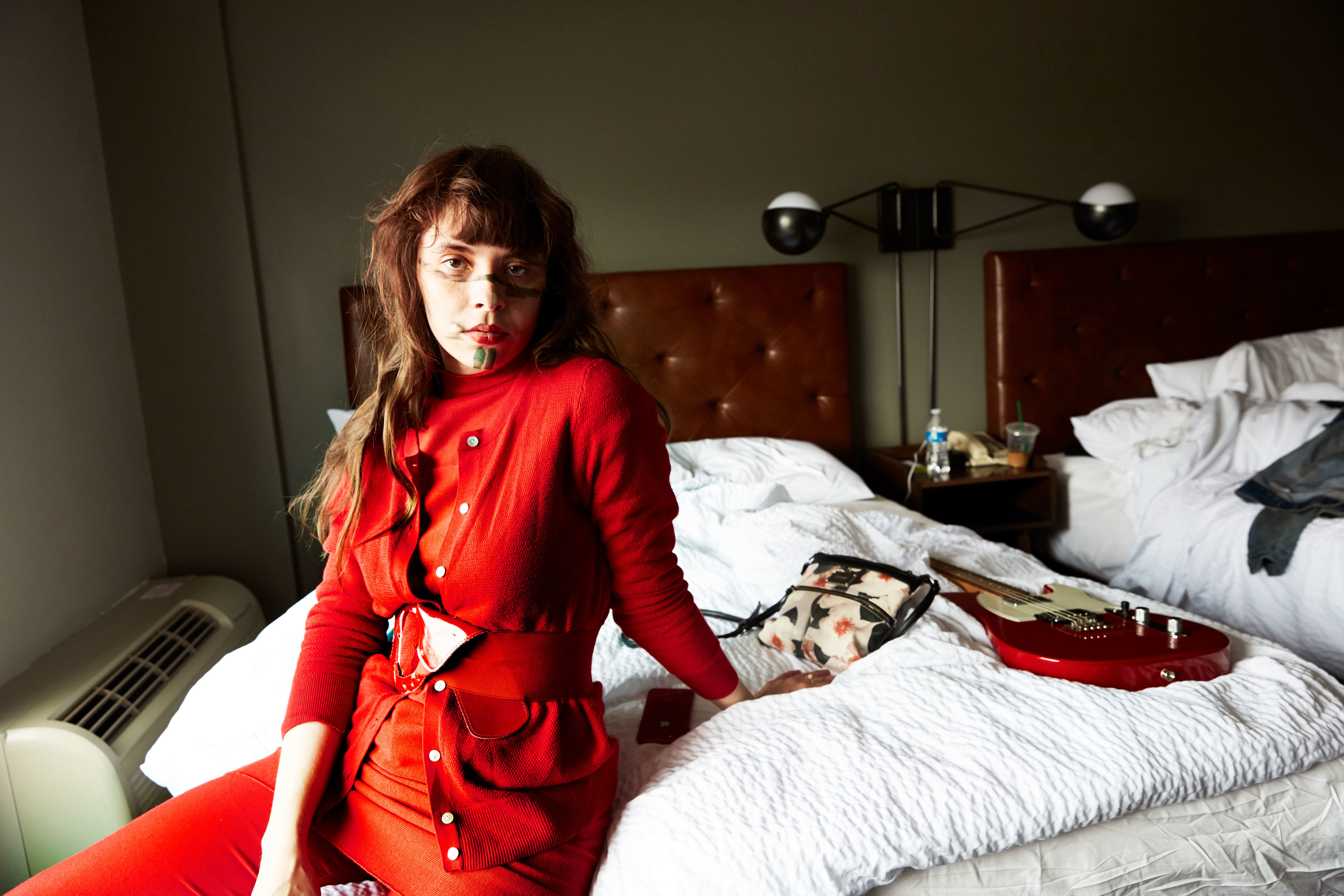
Near Montréal, Quebec. The glamorous life of touring can occasionally land you at a hotel by the airport. That’s fine, as it’s not about the destination, it can be about what you do with your time. This past August, I traveled with Le Butcherettes as they toured with Flaming Lips. The mix with their own headlining shows was perfect because I was able to capture different types of chaos. And when the airport hotel presented itself, (lead singer and guitarist) Teri and I passed the time with the camera. PHOTOGRAPHY BY ROBIN LAANANEN.
When you first showed me your work with Warpaint I was absolutely floored. There is a fantastic narrative quality in your work, but what really captivated me was how intimate the photos were, how disarming they are. I’ve seen that same look captured with the guys from Refused, too. They tell such a great story. I assume the story is what drove you to create Us / Then?
Thank you! Yes, I’m a huge fan of the photographs from the ’60s and ’70s, documenting the behind the scenes of tour, when the photographer lived in the trenches with the band allowing them access to the reality of life on the road. It’s such a fascinating story. I feel now that everyone has a camera in their pocket, and with the competition instilled by social media, the ill-conceived notion of non-stop glamour has taken over. It’s a misrepresentation, and I wanted to show a more authentic view. With Warpaint and Refused, there’s a strong trust between us that permits my camera access to real moments. They all understand that although they might not be experiencing a good moment at the time, that there’s a beauty in those, too.
What was it like working with a photo editor for Us / Then? How did that process work? What are some things you learned about your work?
It was a learning process that I was happy to experience. I was on tour when we began, so I’d send her selected images, and she’d give me her opinion as to which were strongest, which ones went together. Luckily, she is based in Los Angeles, so we met up for a handful of sessions once I returned. She had all the photos printed, which was great, as we could place them on the wall, then the floor as pages for the layout. There’s a very satisfying feeling to not be working on a computer, to have the physical prints in my hands. I learned how to look at my work objectively and see how completely different subject matters can still complement each other, whether it be through color, shapes, lines.
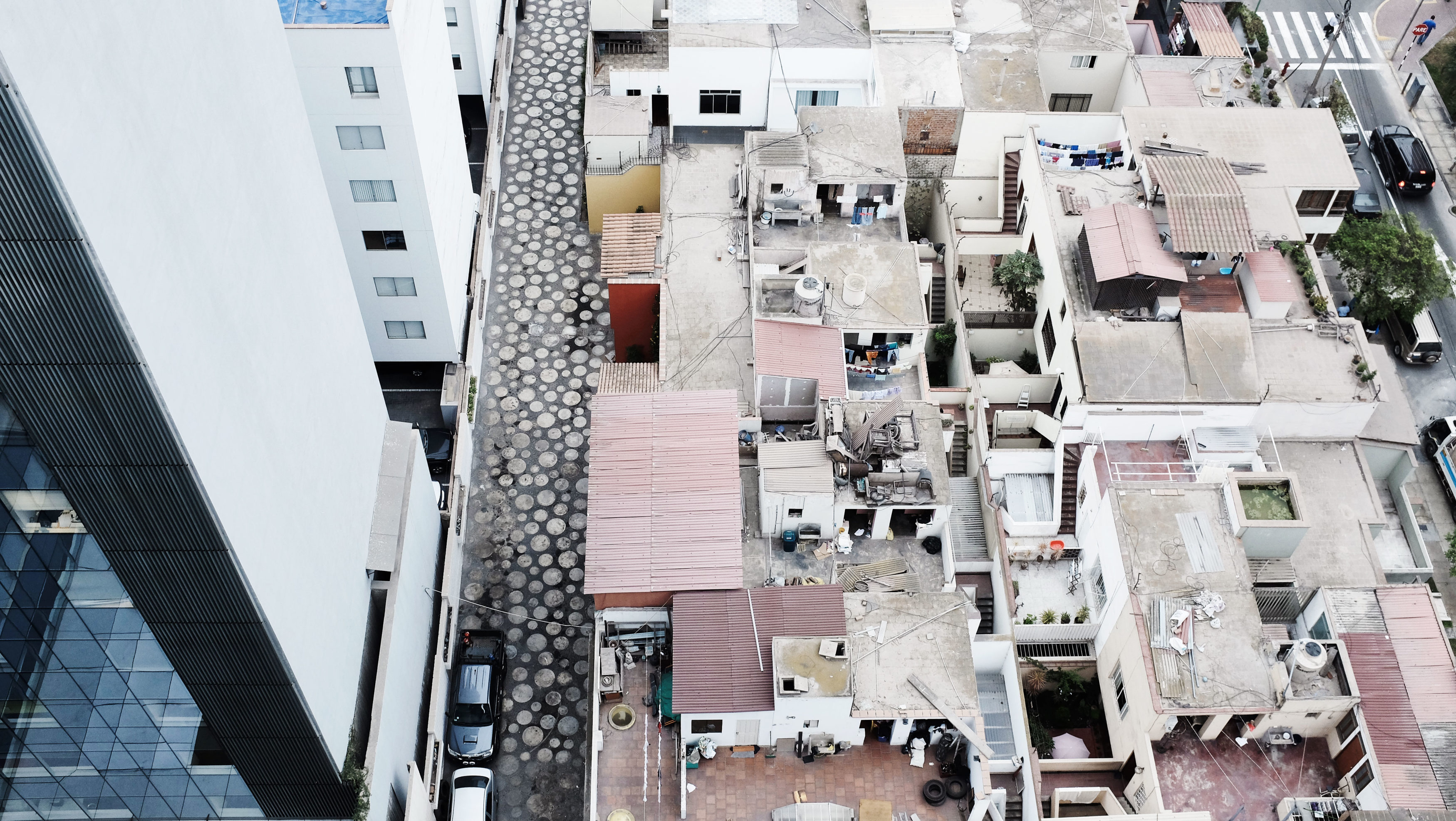
Lima, Peru. I enjoy aerial views of cities, as I’m drawn to the colors, the shapes, and to the ‘bird’s eye view’ of the lives of others across the world. A tour with Warpaint led us to South America, where relaxation and intensity go hand in hand. The music fans are truly special with their dedication, their energy, and the cities offer too much to do and see during our brief stay. PHOTOGRAPHY BY ROBIN LAANANEN.
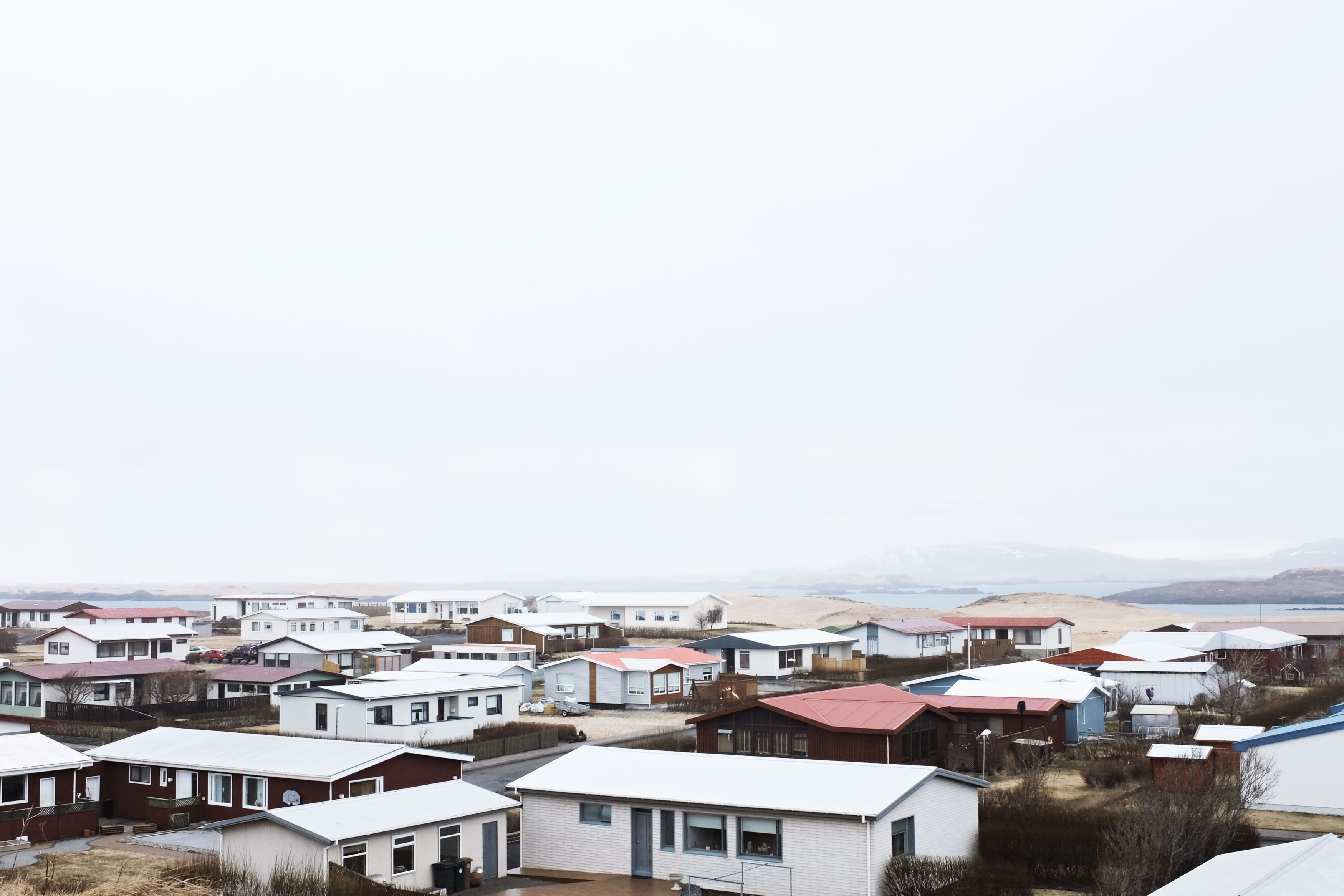
PHOTOGRAPHY BY ROBIN LAANANEN
If money and time were no object, what would you love to dive into full-time?
I’d love to see more of the world; there’s so much to see, to photograph. And people from all walks of life are fascinating to me. I’d love to shoot for travel publications, for airlines, and shoot personal projects along the way. I love road trips, as there’s the freedom to stop when passing by a photographic place.
Do you have a favorite piece of design in your home?
I’m embarrassed to admit that most of my pieces at home are secondhand, given by friends. I shy away from spending money on things for my home since I’m not there too much. I will say I love my bed, and it’s not secondhand.
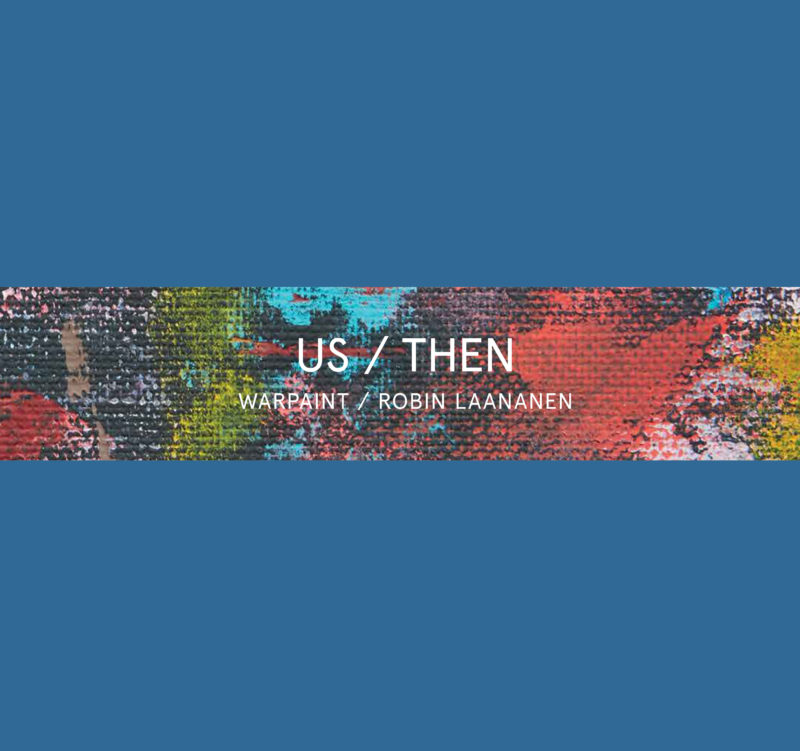
US/THEN by Robin Laananen, hardcover, 180 pages, (Sentanta Books). Readers get a behind-the-scenes look in these glossy pages that document the indie rockstars Warpaintin previously unpublished photos. Whether onstage, on the bus or even enjoying a rare getaway, Robin captures intimate portraits of the band from 2010 to 2017.
